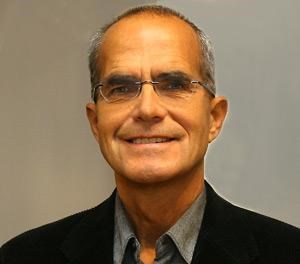Tla’Amin (Sliammon) Community Health Services has welcomed Dr. Raymond Obomsawin as its new executive director.
Obomsawin, who is a citizen of both Canada and the United States and a member of Abenaki First Nation in Canada and Oneida Nation in the United States, has moved from Ottawa to the Powell River area to take the position. A desire to take the job and to escape Ontario winters inspired the move, said Obomsawin. He had heard that Tla’Amin is a progressive community and wanted to bring his experience and ideas to the job.
Since 2010 Obomsawin has been doing contract work, developing Indigenous Cultural Competency training for the BC Provincial Health Service Authority and organizing a grant application for the Canadian Institutes of Health Research Institute of Aboriginal Peoples’ Health. His last full-time position was as a senior advisor with the National Aboriginal Health Organization.
Beyond that, Obomsawin has a storied background, working both internationally and throughout North America, in a variety of positions with many organizations, both in and outside health care. Obomsawin has also done much research and writing on a variety of social and health topics, including vaccinations, of which he is an outspoken opponent.
As one of his first projects, Obomsawin is involved in the development of a seven-year plan for Tla’Amin health services around a health transfer process from Health Canada. Obomsawin said this creative plan will involve a greater incorporation of traditional medicines to health care as part of a more culturally-based approach.
A series of public meetings with the Tla’Amin community have been held recently to introduce residents to the ideas behind the plan and to inform them of how they can be involved and provide input as community members. The meetings ranged in subject from health lessons of traditional indigenous peoples to natural approaches to modern diseases to dangers of genetically modified foods.
“We’re talking about a creative redesigning of a lot of the programming and we’re doing this in consultation with the community,” said Obomsawin, “so it’s not going to be an ivory tower exercise.”
Obomsawin is entering a position and an organization that has seen some controversy and changes recently. In April Tla’Amin community members stalled a national accreditation process with a protest outside the Community Health Services building expressing dissatisfaction with the agency. Representatives from Accreditation Canada chose not to fulfill a scheduled visit due to the protests.
Protestors also called for the resignation of then executive director Hugh Prichard. Prichard was terminated from the position in May for reasons undisclosed to the Peak. Members of the Tla’Amin First Nation Health Board Society also recently joined the BC Government and Service Employees’ Union in a move to seek “fairness, respect and to have a voice in their workplace,” as stated in a union press release at the time.
Although he recognizes that it is unavoidable, Obomsawin tries to keep politics to a minimum when it comes to health services. He said moves are in the works to help manage the politics of the agency, but he could not give specifics at this time. He did say he is addressing issues within the agency and that the agency’s priority is to provide health care.
“It should be an apolitical entity, it should be simply a service, non-profit organization doing its job, without immersing itself in community politics,” said Obomsawin. “It’s a very difficult process to keep politics out of the organization. But I’m working on it.”
Personally, Obomsawin said he is enjoying the climate in the area and hopes to get some skiing in this winter. He has moved to the community with his wife of 36 years, with whom he has three adult children. He said he has already met many nice people and is looking forward to working in his new position.



